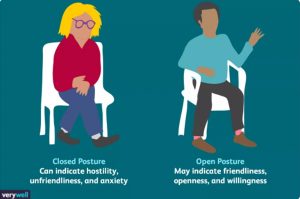With an initial 144,000 members of staff in 1948, the NHS has become not only the UK’s biggest employer, but the fifth largest in the world. Currently employing a whopping 1.7 million people across England, Wales, Scotland and Northern Ireland, it’s expected that 190,000 additional staff may be needed in England alone by 2027, according to a draft workforce strategy from Public Health England.
NHS Jobs, the dedicated recruitment portal for roles within the NHS and other healthcare organisations, currently has over 17,000 live jobs including areas such as occupational therapy, physiotherapy, clinical psychology, and speech and language therapy. Whether you’re looking for a clerical, ancillary or healthcare professional role, NHS Jobs is a great place to begin your search.
The website itself is extremely user-friendly, with the ‘quick search’ option on the homepage allowing you to find positions by keyword, location or salary. Additionally, if you have a clearer idea what you’d like to apply for, you can use the ‘advanced search’ function to filter available roles by job title, skills and experiences required, employer and staff group.
Give your NHS application a health-check…
In order to apply for any role on NHS Jobs, you’ll need to submit an application online detailing your personal information, qualifications, employment history, referees and, finally, your supporting statement. This is, by far, the most important element of your application. A supporting statement is your opportunity to discuss your skills and experience, your motivations for applying and your eligibility for this role in particular.
A strong supporting statement will include:
- A brief overview of who you are, including your degree discipline and any specialisms
- The role that you wish to apply for (e.g. Rotational Band 5 Physiotherapist in Basingstoke)
- Your motivations for applying to this department/trust or role, in particular
- Evidenced alignment with the organisation’s values, ethics or ethos
- Reference to each of the skills and attributes within the job description and/or person specification, evidenced clearly using a variety of your own experiences (inc. paid and unpaid work, volunteering, work placements, academic learning)
- No more than 1500 words, unless otherwise stated
REMEMBER: Make sure you check (and double-check!) your application thoroughly as, once you’ve submitted your application to NHS Jobs, there’s no going back… you’ll only be able to amend your home address and telephone number!
Why not read our previous blog post on ‘Application Writing: How to do it right!’?
Clues for Interviews
If you’ve blown the recruitment team away with a well-written and considered supporting statement, the next step could be an interview! *gulp* But, fear not – we’ve got your back! Here are a few tips and tricks on how to be a top performer at interview.
- First impressions count! Remember that your interview doesn’t only happen in the boardroom… your interview begins from the moment you arrive at Reception and doesn’t end until you’re leaving the building afterwards. The recruiting team may well ask the receptionist or the staff member giving you a tour of the building what they thought of you, so be polite, professional and attentive.
- Actions speak louder than words! Reading body language can be a subconscious action but it can really make a difference to the opinion we have about someone. Remember to give a firm handshake, make frequent eye contact with each interviewer, and show that you’re interested in what they have to say.
If you’re slouching in your chair or keep checking your watch, it can look like you’re uninterested and don’t want to be there.
- Prepare for the “So, tell us about yourself…” Oh, that old chestnut? It’s inevitable that you may be asked to tell interviewer about yourself so don’t get caught out. Try to prepare a 30-second ‘elevator pitch’ on who you are, what and where you’re studying, a brief overview of your relevant experience and what you’re aiming to achieve (e.g. opportunity to utilise your skills within a hospital-based role).
Keep it relevant and avoid topics such as this week’s horoscope, the book you’re currently reading, or the egg-and-spoon race you won when you were 8.
- Research, research, research! As a minimum, take time to read the job description and/or person specification thoroughly and get to know the job role inside and out. Research the organisation in terms of their ethics, ethos, goals and mission statement, and evaluate how these align with your own views.
Use your own academic learning, papers, journals and newspaper articles to keep up-to-date with any pertinent industry developments. (You could link this to your own continuing professional development or CPD)
- Variety is the spice of life!Prior to your interview, map out all of the experience you have including both paid and unpaid work experience, work placements, volunteering, involvement in societies, extra-curricular activities. Using the person specification as a guide, consider the skills you’ll need to demonstrate and which of your experiences can help you do this, such as:
Academic learning – knowledge of physiotherapy practices
Work placement – experience working in a multi-disciplinary team, building patient rapport
Part-time job in retail – excellent communication skills, ability to deal with conflict
Duke of Edinburgh Gold – effective team-working skills, decision-making, problem-solving
TIP: Try to think of 2-3 specific examples when you have demonstrated each of these skills so that you have a variety to refer to, if needed, during the interview.
- Reach for the STAR(s) If you struggle to give concise answers at interview, or you’ve got the tendency to be a first-class waffler, the STAR method can really help!
It provides you with a handy framework to use when you need to evidence your skills and experience and is especially useful for competency-based interview questions.
For example, “Could you tell us about a time when you’ve faced difficulty when working with another team or group member”.
Situation “When working as part of the marketing team at Andrew’s Signs, I was assigned a project, with three other team members, to produce a new marketing strategy…”
Task “One member of the team seems particular reluctant to get involved and voiced that he had never produced a marketing strategy before and didn’t know where to start…”
Action “I ensured that I took the time to work closely with the team member and gave him some insight into the process of producing a strategy and talked through his areas of responsibility. He was visibly more comfortable and confident in the task…”
Result “As a result of this, we were able to work together more efficiently and we received excellent feedback from the marketing manager, on both the strategy and what we had achieved as a team.”
Want a second opinion? Refer yourself to the LaunchPad team!
Don’t forget that the LaunchPad team can provide a wide range of support including CV and cover letter checks, personal statement reviews, interview and assessment centre preparation, and high-quality careers advice to help you to achieve your career goals. Plus, we’re a friendly bunch!
Get in touch with us via email (careers@yorksj.ac.uk), book an appointment via Jobs & Opportunities, or drop in to the LaunchPad in Holgate (HG/013).
Additional Resources
NHS Jobs – Searching for the Perfect Job
NHS Jobs – Making Successful Applications
NHS Jobs – Managing the Interview
Sources
Health Education England Strategic Framework
The Guardian – “Future-proofing the NHS”
Draft Health and Care Workforce Strategy for England to 2027

